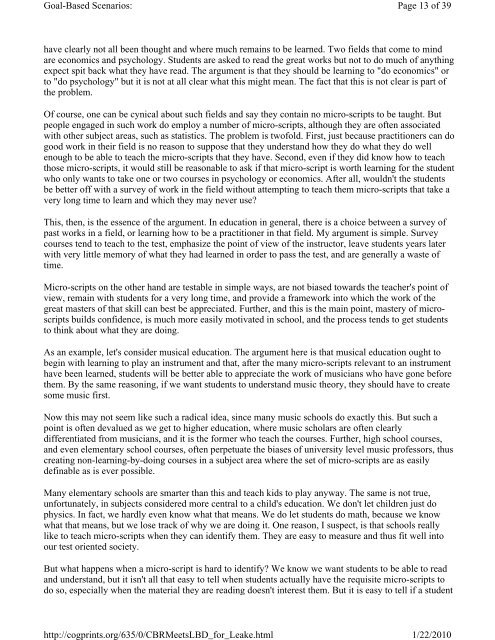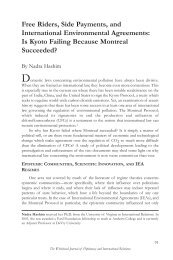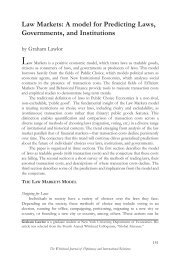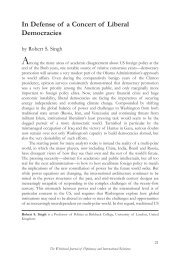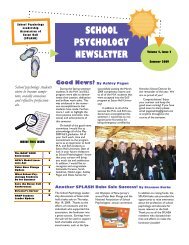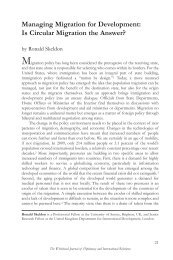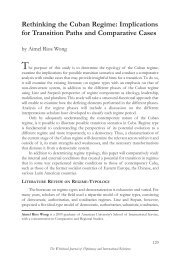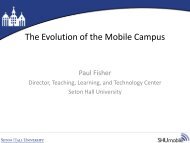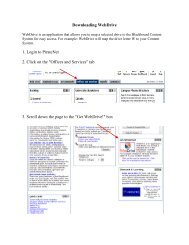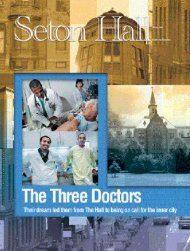Case-Based Reasoning Meets Learning by Doing
Case-Based Reasoning Meets Learning by Doing
Case-Based Reasoning Meets Learning by Doing
Create successful ePaper yourself
Turn your PDF publications into a flip-book with our unique Google optimized e-Paper software.
Goal-<strong>Based</strong> Scenarios:<br />
Page 13 of 39<br />
have clearly not all been thought and where much remains to be learned. Two fields that come to mind<br />
are economics and psychology. Students are asked to read the great works but not to do much of anything<br />
expect spit back what they have read. The argument is that they should be learning to "do economics" or<br />
to "do psychology" but it is not at all clear what this might mean. The fact that this is not clear is part of<br />
the problem.<br />
Of course, one can be cynical about such fields and say they contain no micro-scripts to be taught. But<br />
people engaged in such work do employ a number of micro-scripts, although they are often associated<br />
with other subject areas, such as statistics. The problem is twofold. First, just because practitioners can do<br />
good work in their field is no reason to suppose that they understand how they do what they do well<br />
enough to be able to teach the micro-scripts that they have. Second, even if they did know how to teach<br />
those micro-scripts, it would still be reasonable to ask if that micro-script is worth learning for the student<br />
who only wants to take one or two courses in psychology or economics. After all, wouldn't the students<br />
be better off with a survey of work in the field without attempting to teach them micro-scripts that take a<br />
very long time to learn and which they may never use?<br />
This, then, is the essence of the argument. In education in general, there is a choice between a survey of<br />
past works in a field, or learning how to be a practitioner in that field. My argument is simple. Survey<br />
courses tend to teach to the test, emphasize the point of view of the instructor, leave students years later<br />
with very little memory of what they had learned in order to pass the test, and are generally a waste of<br />
time.<br />
Micro-scripts on the other hand are testable in simple ways, are not biased towards the teacher's point of<br />
view, remain with students for a very long time, and provide a framework into which the work of the<br />
great masters of that skill can best be appreciated. Further, and this is the main point, mastery of microscripts<br />
builds confidence, is much more easily motivated in school, and the process tends to get students<br />
to think about what they are doing.<br />
As an example, let's consider musical education. The argument here is that musical education ought to<br />
begin with learning to play an instrument and that, after the many micro-scripts relevant to an instrument<br />
have been learned, students will be better able to appreciate the work of musicians who have gone before<br />
them. By the same reasoning, if we want students to understand music theory, they should have to create<br />
some music first.<br />
Now this may not seem like such a radical idea, since many music schools do exactly this. But such a<br />
point is often devalued as we get to higher education, where music scholars are often clearly<br />
differentiated from musicians, and it is the former who teach the courses. Further, high school courses,<br />
and even elementary school courses, often perpetuate the biases of university level music professors, thus<br />
creating non-learning-<strong>by</strong>-doing courses in a subject area where the set of micro-scripts are as easily<br />
definable as is ever possible.<br />
Many elementary schools are smarter than this and teach kids to play anyway. The same is not true,<br />
unfortunately, in subjects considered more central to a child's education. We don't let children just do<br />
physics. In fact, we hardly even know what that means. We do let students do math, because we know<br />
what that means, but we lose track of why we are doing it. One reason, I suspect, is that schools really<br />
like to teach micro-scripts when they can identify them. They are easy to measure and thus fit well into<br />
our test oriented society.<br />
But what happens when a micro-script is hard to identify? We know we want students to be able to read<br />
and understand, but it isn't all that easy to tell when students actually have the requisite micro-scripts to<br />
do so, especially when the material they are reading doesn't interest them. But it is easy to tell if a student<br />
http://cogprints.org/635/0/CBR<strong>Meets</strong>LBD_for_Leake.html<br />
1/22/2010


